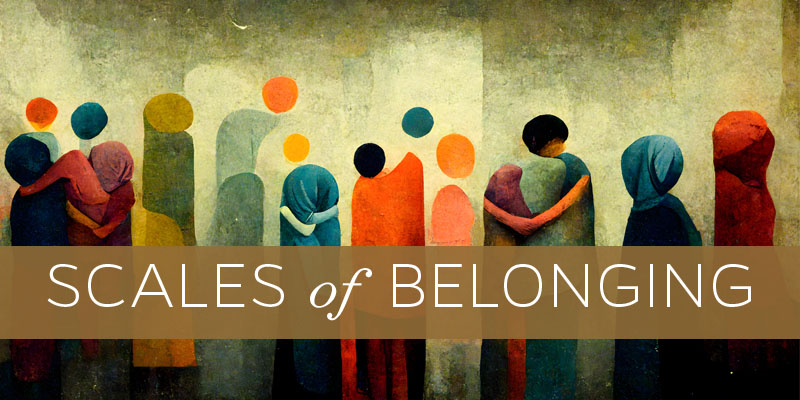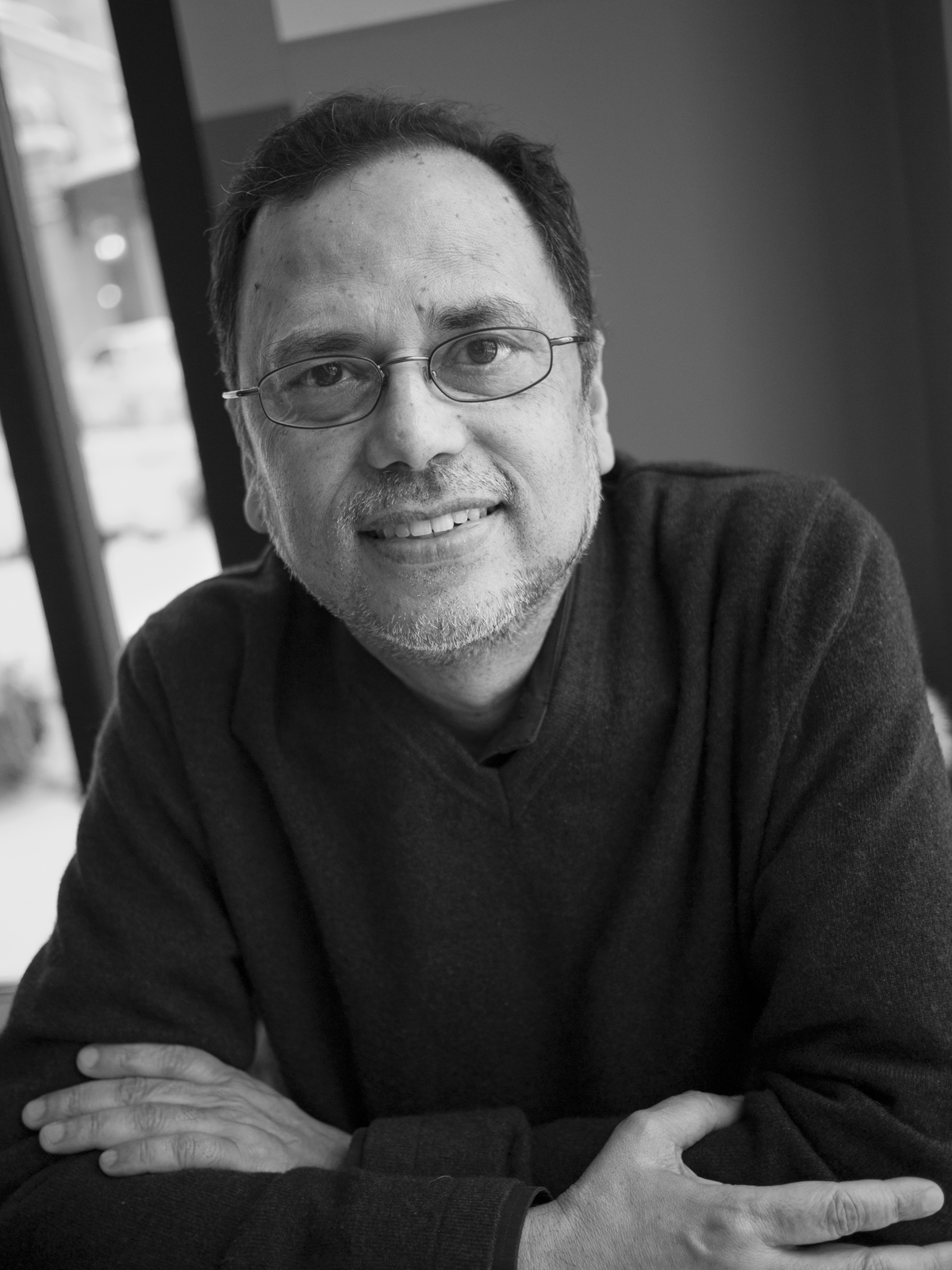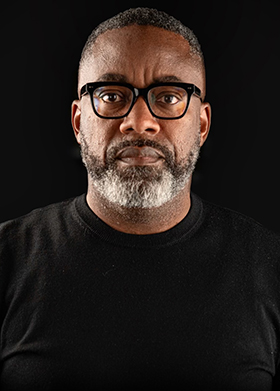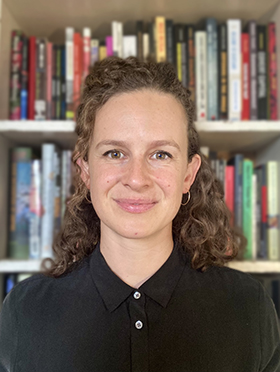Speaker Series 2023-24
Recent years have given life an experimental feel. As interlocked and unpredictable sources of upheaval become the norm, we ask: how and where do we belong? Exiles and refugees may never belong where they make homes. Migrants may never feel at home where they belong. While some choices we make, others are made for us. People move—as much as they are moved by nature and politics. In another key, we are moved by things that affect us: literature, sports, the lives of others. If shared worlds make life meaningful, then what forces repair and rupture the possibility of community? From football fields and detention centers to the planet itself, the Center’s 2023-24 Speaker Series investigates our myriad Scales of Belonging.

SPEAKERS
Fall 2023
Dipesh Chakrabarty (Lawrence A. Kimpton Distinguished Service Professor, Department of History, The University of Chicago)
“Why A New Philosophical Anthropology?”
4:00 p.m. Thursday, September 21, 2023 — Smathers Library 100
Starting from the arguments presented in Dipesh Chakrabarty’s recent books The Climate of History in a Planetary Age (2021) and One Planet, Many Worlds: The Climate Parallax (2023), this talk will seek to explain why making a distinction between the globe and the planet as humanist categories calls for a new philosophical anthropology.
Dipesh Chakrabarty is the Lawrence A. Kimpton Distinguished Service Professor of History, South Asian Languages and Civilizations, and the College at the University of Chicago. He is the founding member of the journal Subaltern Studies, a consulting editor of Critical Inquiry, a founding editor of Postcolonial Studies, and has served on the editorial boards of the American Historical Review and Public Culture. His books include Provincializing Europe: Postcolonial Thought and Historical Difference (2000), The Climate of History in a Planetary Age (2021), and One Planet, Many Worlds: The Climate Parallax (July 2023).
Spring 2024
Leonard N. Moore (George Littlefield Professor, Department of History, The University of Texas at Austin)
“Name, Image, and Blackness: Race and College Football”
4:00 p.m. Thursday, February 15, 2024 – Smathers Library 100
This interactive presentation will look at the racial dynamics of college football in the South in light of recent developments: the transfer portal, NIL, conference realignment, anti-DEI legislation, and the 2023 U.S. Supreme Court decision that outlawed affirmative action in college admissions. The most dynamic of these developments has been Name, Image, and Likeness. Ironically, just several years ago college football fans said that they would never support a team that pays its players. However, those same fans are now demanding that their favorite school pay whatever salary is necessary to recruit the best players. This lecture will make you look at college football from a totally different perspective.
Leonard N. Moore is the George Littlefield Professor of American History and a former vice president at the University of Texas at Austin. Dr. Moore has authored four books on black politics, including Carl B. Stokes and the Rise of Black Political Power, Black Rage in New Orleans, The Defeat of Black Power, and Teaching Black History to White People. Dr. Moore teaches more than 1,000 undergraduate students in the fall semester in his two classes: History of The Black Power Movement and Black Southerners in the Age of Jim Crow. Dr. Moore also directs summer programs in Beijing, China, Cape Town, South Africa, and Dubai. In the Austin community, he serves as Board Chair of the Austin Area Urban League.
Emma Shaw Crane (Fellow, Society of Fellows, Columbia University)
“Research Justice: A Workshop on Collaboration”
10:00 a.m. Thursday, March 28, 2024 – A. Quinn Jones Museum and Cultural Center, 1013 NW 7th Ave
The event is organized in collaboration with the A. Quinn Jones Museum and Cultural Center
The workshop is free and open to the public, but the number of participants is limited. RSVP link will be available in 2024.
This workshop will build on ongoing collaborative research on environmental violence at migrant detention facilities in South Florida, including the recent report “The Toxic Truth.” Research in this framework may include ethnographic, archival, spatial, and multi-modal approaches, including radio and mapping exercises.
“Race, Detention, and Indigeneity in South Florida”
4:00 p.m. Thursday, March 28, 2024 – Smathers Library 100
Between 2016 and 2019, thousands of migrant children were detained at the Homestead Temporary Shelter, a detention camp in South Miami-Dade County, Florida. Though ostensibly a place of humanitarian refuge for “unaccompanied” and asylum-seeking children, detained children were exposed to harmful sounds and toxic material from an adjacent military base. This talk tells the story of the detention camp in relation to the military base, which is a crucial node in the hemispheric circulation of weapons, soldiers, and military expertise. By thinking across space and scale, an ethnographic approach challenges ideas of detention camps as spaces of exception and instead understand them as porous, permeable, and embedded within suburban landscape.
Emma Shaw Crane is a postdoctoral fellow in the Society of Fellows in the Humanities at Columbia University in the City of New York, where she is affiliated with the Department of Anthropology and the Center for the Study of Ethnicity and Race. She received her PhD in American Studies from New York University in 2021. She is co-editor, with Ananya Roy, of Territories of Poverty: Rethinking North and South (University of Georgia Press 2015) and her work has been published in Environment and Planning D: Society and Space, Public Culture, and Antipode. She researches and writes with a coalition of community organizations fighting for migrant and environmental justice in South Florida.
All events are free and open to the public.
UF Series Funders and Co-Sponsors:
Center for the Humanities and the Public Sphere (Rothman Endowment), College of Liberal Arts and Sciences, UF Research, George A. Smathers Libraries, A. Quinn Jones Museum and Cultural Center, African American Studies Program, Bob Graham Center for Public Service, Center for Arts, Migration, and Entrepreneurship, Department of Anthropology, Department of Geography, Department of History, Department of Political Science
For information on past speaker series, click here.


